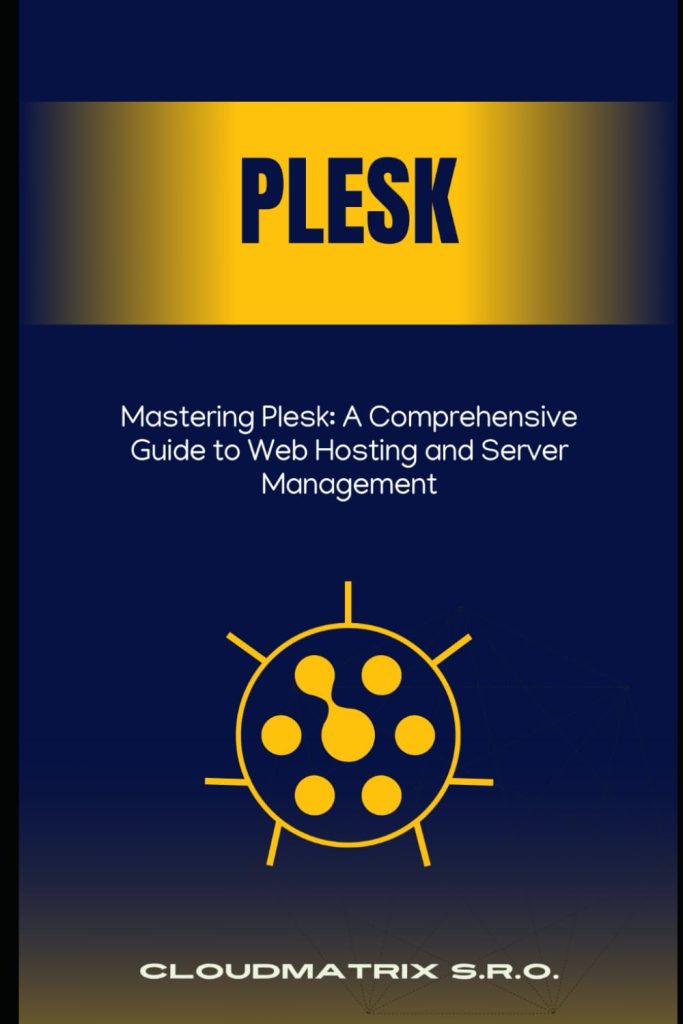In the dynamic world of web hosting, selecting the right control panel is a game-changer. Whether you’re a newbie launching your first website or a seasoned developer juggling multiple sites, tools like Plesk and cPanel simplify server management, website setup, and security. With 2025 ushering in new updates, AI integrations, and evolving hosting demands, which control panel comes out on top in the Plesk vs. cPanel debate?
This in-depth comparison explores both platforms, detailing their features, strengths, weaknesses, and suitability for modern web hosting. We’ll cover user interfaces, pricing, security, and performance optimizations, all tailored to today’s cloud-driven, security-focused landscape. By the end, you’ll know which control panel aligns best with your web hosting goals in 2025. Let’s dive in.
What Are Web Hosting Control Panels and Why Do They Matter?
A web hosting control panel is a user-friendly interface that lets you manage servers, websites, emails, databases, and more without touching command-line code. Think of it as the cockpit of your hosting setup—intuitive, efficient, and packed with tools to streamline tasks.
In 2025, with rising cyber threats, AI-powered features, and a shift toward hybrid cloud hosting, a reliable control panel is more than convenient—it’s essential for scalability and security. Plesk and cPanel dominate the market, powering millions of websites globally. However, they cater to slightly different needs, from shared hosting to VPS and dedicated servers. Understanding their differences can save you time, money, and stress.
An In-Depth Look at Plesk: Features, Pros, and Cons
Plesk has been a favorite among web professionals since the early 2000s. In 2025, Plesk Obsidian, its latest version, emphasizes versatility and modern integrations, making it a strong contender for developers, agencies, and hosting providers.
Key Features of Plesk in 2025
- Multi-Platform Support: Plesk runs smoothly on both Linux and Windows servers, including the latest Windows Server 2025, offering unmatched flexibility.
- WordPress Toolkit: A standout feature, it automates WordPress updates, staging, cloning, and security scans with AI-driven testing, ideal for managing multiple sites.
- Extensions and Integrations: Over 100 extensions support tools like Git, Docker, and SEO kits, with seamless integration for cloud providers like AWS, Azure, Google Cloud, and DigitalOcean.
- Security Tools: Includes a built-in firewall, fail2ban, updated ModSecurity, and Let’s Encrypt SSL for robust protection.
- Performance Optimizations: Dynamic dashboards monitor site and server performance in real-time, with tools for resource optimization.
- User Interface: A sleek, customizable sidebar design that’s intuitive and visually appealing, praised for its modern look.
Pros of Plesk
- Excellent for managing multiple sites and modern apps like Node.js or Ruby.
- Beginner-friendly automation with powerful features for pros.
- Regular updates, including 2025 enhancements for PHP settings and Windows compatibility.
- Cost-effective for unlimited domains on a single server.
Cons of Plesk
- The sheer number of extensions can overwhelm less tech-savvy users.
- Performance may lag slightly in resource-heavy setups compared to lighter panels.
- Pricing starts at around $10-15/month per server, which can add up for multiple setups.
Plesk’s adaptability makes it a top choice for diverse hosting needs in 2025.
An In-Depth Look at cPanel: Features, Pros, and Cons
cPanel, paired with WebHost Manager (WHM), has been the go-to for Linux-based hosting since 1997. In 2025, it remains a powerhouse, focusing on reliability and extensibility with new AI and monitoring tools.
Key Features of cPanel in 2025
- WHM for Server Management: WHM handles server-wide tasks like account creation, reseller management, and resource allocation, perfect for hosting providers.
- Sitejet Builder: An AI-powered website builder for rapid site creation, including instant generation and translations.
- Plugins and Add-Ons: Hundreds of plugins for security, backups, and performance, with easy WordPress integration.
- Security Tools: Robust options like ConfigServer Security & Firewall, updated ModSecurity, and auto-SSL for secure hosting.
- Performance Optimizations: Built-in caching, PHP version management up to 8.4, and upcoming monitoring tools for server health.
- User Interface: A straightforward grid-style layout that’s familiar but considered dated by some compared to modern designs.
Pros of cPanel
- Lightning-fast performance with low memory usage, ideal for high-traffic sites.
- Extensive community support and plugins for high customization.
- Perfect for resellers with tiered accounts and white-labeling.
- Top-notch automatic backups and restorations.
Cons of cPanel
- Linux-only, with no native Windows support.
- Pricing can escalate with more accounts; 2025 sees increases for Solo plans but reductions for higher tiers.
- Interface may feel clunky for users accustomed to sleek, modern designs.
cPanel excels in stable, Linux-centric environments, especially for businesses scaling hosting services.
Head-to-Head Comparison: Plesk vs. cPanel in Key Areas
To determine the winner for 2025, let’s compare Plesk and cPanel across critical categories. Here’s a quick-reference table, followed by detailed insights.
| Feature/Category | Plesk | cPanel | Winner in 2025? |
|---|---|---|---|
| User Interface | Sleek, modern sidebar; highly customizable | Grid icons; intuitive but older look | Plesk (for aesthetics) |
| Compatibility | Linux & Windows (incl. Server 2025) | Linux only | Plesk |
| Security | WP Toolkit, ModSecurity, extensions | More plugins, robust built-ins | cPanel |
| Performance | Monitoring dashboards, optimizations | Faster, lower memory use | cPanel |
| Pricing | Per server/domains; ~$10-50/month | Tiered by accounts; Solo ~$20+, others down | Tie (depends on scale) |
| Support & Community | 24/7 phone/email, extensions ecosystem | Vast community, ticket-based support | cPanel |
| Features & Tools | 100+ extensions, AI WP tools | Add-ons, Sitejet AI, reseller focus | Tie |
User Interface and Ease of Use
Plesk’s modern, customizable UI feels fresh and user-friendly in 2025, appealing to those who value aesthetics. cPanel’s grid layout is reliable but feels like a throwback, less appealing to users seeking a contemporary design.
Security and Performance
cPanel takes a slight lead in security with its extensive plugin ecosystem, though Plesk’s built-in tools are catching up. For performance, cPanel’s efficiency shines in resource-constrained environments.
Pricing and Support
Pricing varies: Plesk is better for unlimited setups, while cPanel’s 2025 pricing adjustments favor larger accounts. Both offer solid support, but cPanel’s vast community gives it an edge.
What’s New in Plesk and cPanel for 2025?
In 2025, Plesk introduces Windows Server 2025 support, enhanced security patches, and improved PHP settings. cPanel rolls out an AI-powered website builder, advanced monitoring tools, and pricing tweaks with Solo plans increasing and higher tiers decreasing. Both platforms emphasize AI and cloud integrations, aligning with trends like hybrid hosting and zero-trust security.
When to Choose Plesk vs. cPanel in 2025
- Choose Plesk if you need Windows support, manage multiple WordPress sites, or prefer a modern interface. It’s ideal for developers and agencies.
- Choose cPanel for Linux-only setups, reselling, or high-performance needs. It’s great for hosting providers and e-commerce sites.
If you’re unsure, many hosts offer trials to test both platforms.
Conclusion: Who Wins the Plesk vs. cPanel Battle for Web Hosting in 2025?
There’s no one-size-fits-all winner—it depends on your needs. Plesk excels in versatility and modern design, especially for mixed-OS environments. cPanel shines for performance and reseller features in Linux setups. In 2025, choose based on your hosting type, budget, and required tools. Both will keep your sites running smoothly in today’s digital landscape.
Ready to pick your web hosting control panel? Share your thoughts—what’s your choice for 2025?
See Also
-

Choosing the Right Dedicated Hosting: Private vs. Public — Everything You Need to Know
-

VPS Web Hosting Demystified: Unlock Power, Speed & Control Like a Pro!
-

The Complete Guide to Shared Hosting: Everything You Need to Know
-

Seamless Site Moves: The 10 Best WordPress Migration Plugins for 2025
-

Web Hosting Migration Made Easy: All the Methods You Need to Know in One Power Guide
-

Turbocharge Your Website: Pro Tips to Tweak .htaccess, Conf & Robots.txt Like a Developer


